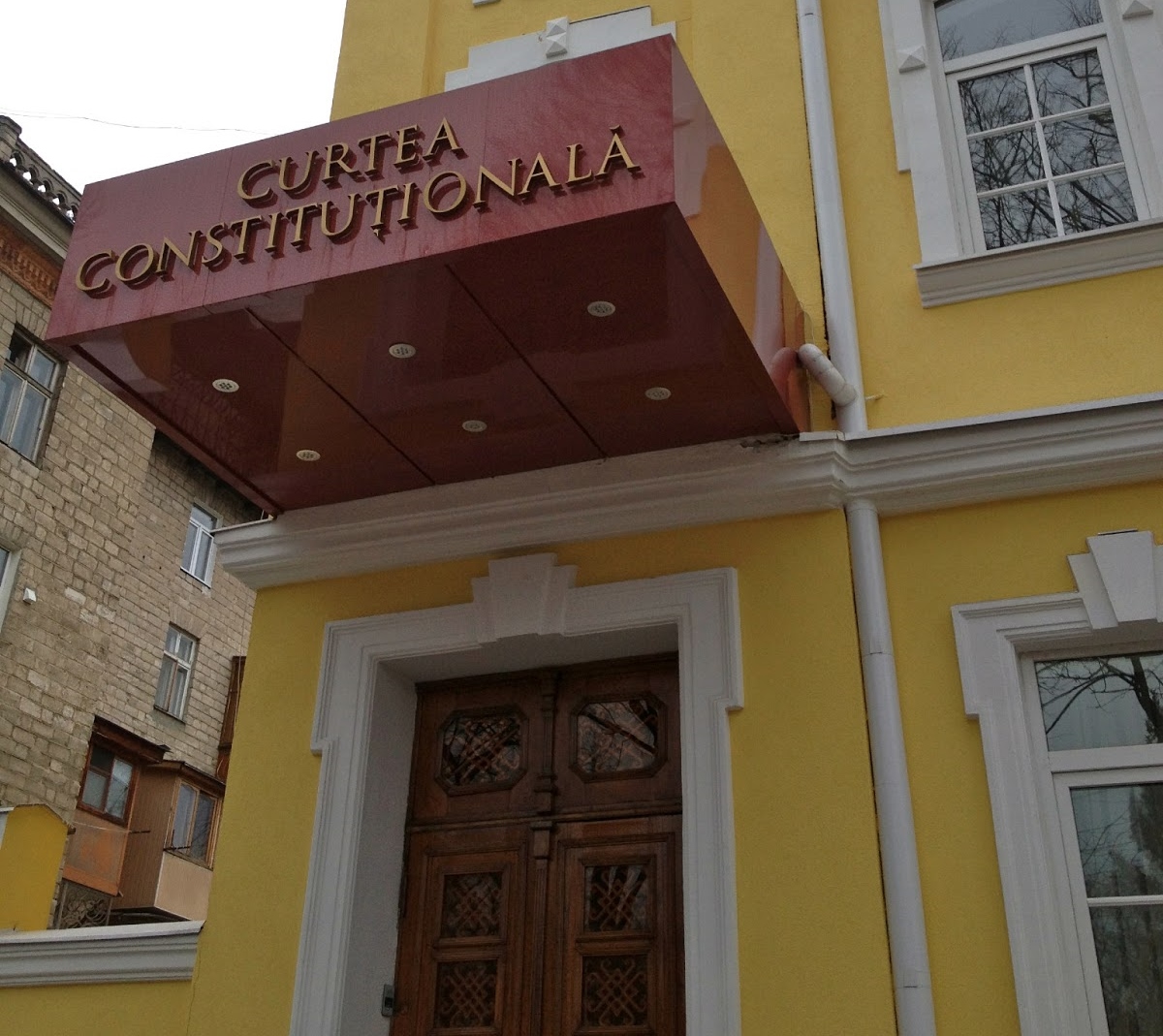
Language Politics, Party Politics, and Constitutional Court Politics in Moldova
Publication: Eurasia Daily Monitor Volume: 11 Issue: 6
By:

Denominating the Republic of Moldova’s indigenous ethnicity and the state language as Moldovan or Romanian is a salient, continuous, and often emotional controversy in Moldova. This issue is far more political than philological. And it is often misperceived as involving a choice between Moldovan statehood or unification with Romania. The controversy impinges on Moldova’s party politics and elections, Moldova-Romania relations, the politics of the Transnistria conflict, and Russia’s policy toward Moldova (as Tiraspol and Moscow oppose Romanian influence in Moldova).
The name of the state language in the Constitution and legislation is “Moldovan.” The indigenous spoken language is in fact a dialect of the Romanian language; while the standardized cultivated language in Moldova is identical with the Romanian. Nevertheless, a very large majority of the Republic of Moldova’s indigenous population defines its ethnicity and language as Moldovan, not Romanian. Conversely, a section of the educated elite calls for changing the name of the language, from Moldovan to Romanian, in Moldova’s Constitution and legislation. Vocal, but numerically small, the Romanian-minded intelligentsia has long proven unable to move the Moldovan silent majority. The latter, however, lacks a credible “Moldovanist” intelligentsia of its own.
Moldova’s Constitutional Court has now entered the fray, with a ruling on December 5 and an exposition of arguments published on December 24 (Unimedia, December 5 and 24). The Court seeks to prepare the ground for re-naming the state language in the Constitution and legislation, from Moldovan to Romanian (see EDM, January 10).
The brief ruling and lengthy substantiating arguments enunciate a doctrine, but do not require any constitutional or legislative changes at this time. This Court’s doctrine downgrades the status of the Constitution to that of a derivative document, not the highest in the land.
The Court demotes the status of the Constitution (adopted in 1994), subordinating it to the Declaration of Independence (adopted in 1991). The Declaration had named the language as Romanian, but the constitution names it as Romanian. The Court argues that the name of the state language in the 1991 Declaration has the status of a constitutional norm that prevails over the existing constitutional norm.
The ruling specifically seeks to change the name of the state language in the Constitution’s Article 13 and the Language Laws. However, the Court’s doctrine, if accepted, could open the way for other revisions along such lines later on.
This Court argues theoretically and comparatively (with examples from carefully selected foreign countries) that proclamations of fundamental principles, adopted by a given country prior to its independence, should prevail over the existing constitution in resolving any points of difference between these documents. The explanatory text further argues comparatively that principles enunciated in a document’s preamble (which is where the 1991 Declaration mentions the Romanian language) can be interpreted as legally binding, even if they are not contained in the document’s body (where binding stipulations are normally contained, e.g. “Moldovan language” in the Constitution). On this matter again, the Court’s argument draws on selected cases far removed from Moldova’s circumstances generally or from the issue of language denomination (constcourt.md, accessed January 8).
This Court in its present composition reflects the views of Moldova’s Romanian-minded intelligentsia. The latter is cheering the Court’s move, but misinterprets it as a mandate or even an order for constitutional change. This is not the case, at least not yet. Nothing in the Court’s ruling would point to implementing actions. The Constitutional Court does not have powers to require the parliament to revise the Constitution. This new doctrine can only facilitate the desired revision by a parliament in the future.
The Court issued its doctrine in response to petitions from rival groups of the small, Romanian-minded Liberal Party, which has split between moderates and radicals, holding seven seats and three seats, respectively, in Moldova’s 101-member parliament. The moderate faction promotes the Romanian cultural identity in Moldova, but does not advocate for unification with Romania. The radical faction comes close to favoring Moldova-Romania unification, biding its time. The two rival groups had petitioned the Court in parallel, advancing their genuinely held values, but also competing over Romanian-minded voters. The two petitions had sought to elicit just the kind of argumentation that the Court has delivered.
Moldova’s Constitutional Court is comprised of six justices, four of whom joined the Court in February–March 2013. Five of the incumbent justices are known to also hold Romania’s citizenship (no legal incompatibility there), and three of those have long promoted the Romanian national identity in Moldova as politicians. The Court’s chairman, Alexandru Tanase, has come forward in multiple media interviews as principal author of the doctrine just enunciated.
Formally or informally, the three political parties in the governing coalition (Liberal-Democrat, Democratic, and Liberal) have nominated the Constitutional Court justices. The ups and downs in relations between these parties and their factions have correspondingly shaped the justices’ political alignments. In 2013, at the behest of two Euro-skeptic party leaders, this Court blocked the re-nomination of Vlad Filat’s pro-Europe government. Usurping the state president’s and parliament’s powers, and exceeding the court’s own, that ruling shocked Moldovan public opinion and EU authorities in Brussels (see EDM, April 25, May 13, 22, 2013).
Moldova’s political parties have developed their distinct attitudes toward national identity, language issues, and Moldova-Romania relations (as on many other topics).
The Communist Party, continuously the single largest parliamentary party from 1998 to date, supports “Moldovanism.” But its position has softened since 2009 after losing power. By now, Communist leaders admit that Romanian and Moldovan are one and the same language. The party insists, however, that Moldovans have the right to name this same language as Moldovan on the Republic of Moldova’s territory. The party staunchly opposes “Romanianization.” Electoral logic compels the Communist Party to take into account the Romanophobia of some of its “Russian-speaking” voters (many of whom are linguistically russified non-Russians).
The Liberal-Democrat Party, Moldova’s largest pro-Western party, draws support across the board from the Moldovan/Romanian-speaking electorate. Party leaders, such as Vlad Filat and the current prime minister, Iurie Leanca, personally and publicly take the position that the language is properly named Romanian, but that its name is a matter of the personal choice of Moldova’s citizens. As the main governing party, the Liberal-Democrats are especially keen to avoid societal tensions and rifts over language issues.
Democratic Party leaders are moderate supporters of the Moldovan identity. Party leader Marian Lupu and Parliament Chairman Igor Corman have reaffirmed this attitude in measured tones (“I am Moldovan,” “I speak Moldovan”), following the Constitutional Court’s ruling. The Court’s member Aurel Baiesu, nominated by the Democratic Party in that post, became the only one among the six justices to vote against the ruling, and made public a dissident opinion (Unimedia, December 23, 2013).
The Liberal and Reform-Liberal parties are generally identified as politically “Romanian-Unionist” and culturally Romanian-minded, respectively (see above).
Only the parliament (by a two-thirds majority) or a referendum, not the Constitutional Court, can legitimately change the Constitution. The next parliamentary elections are due by the end of this year (2014).




